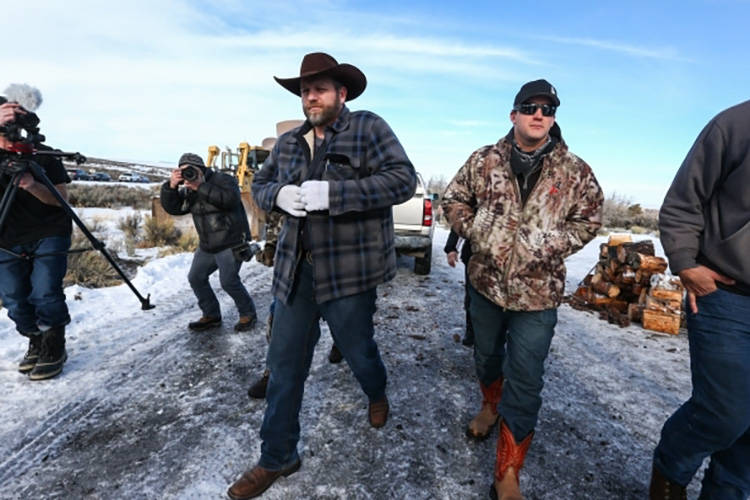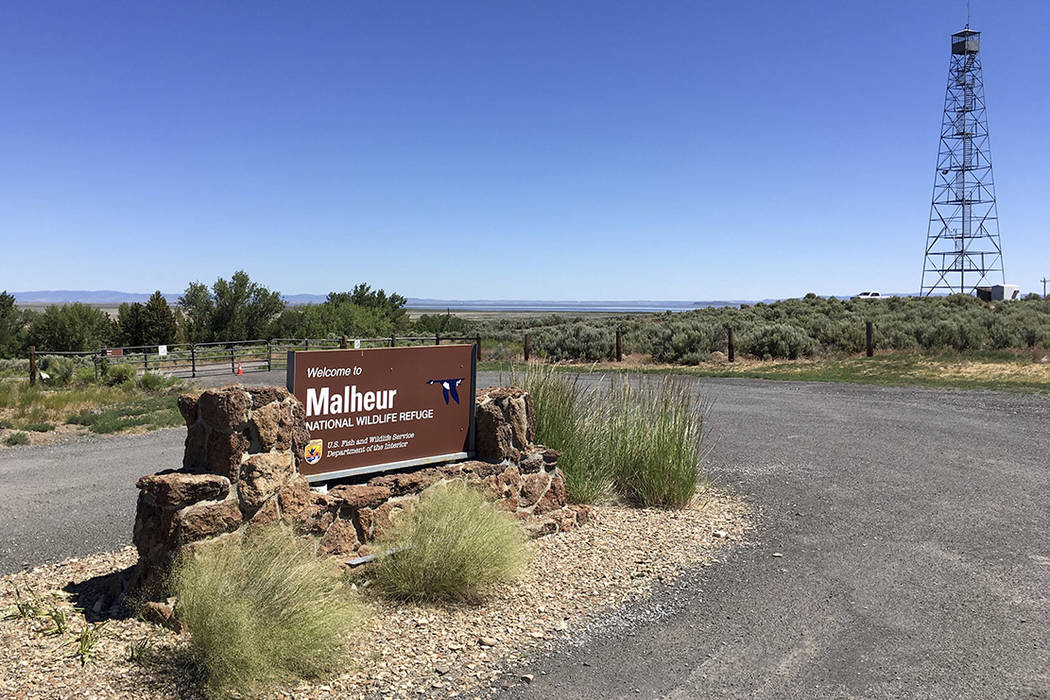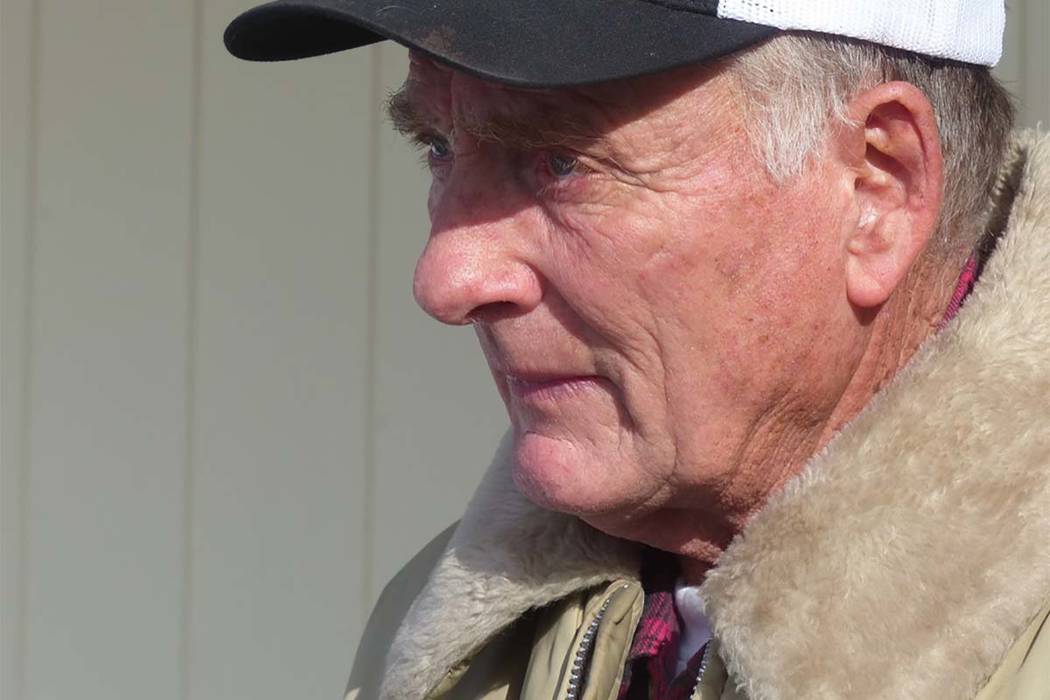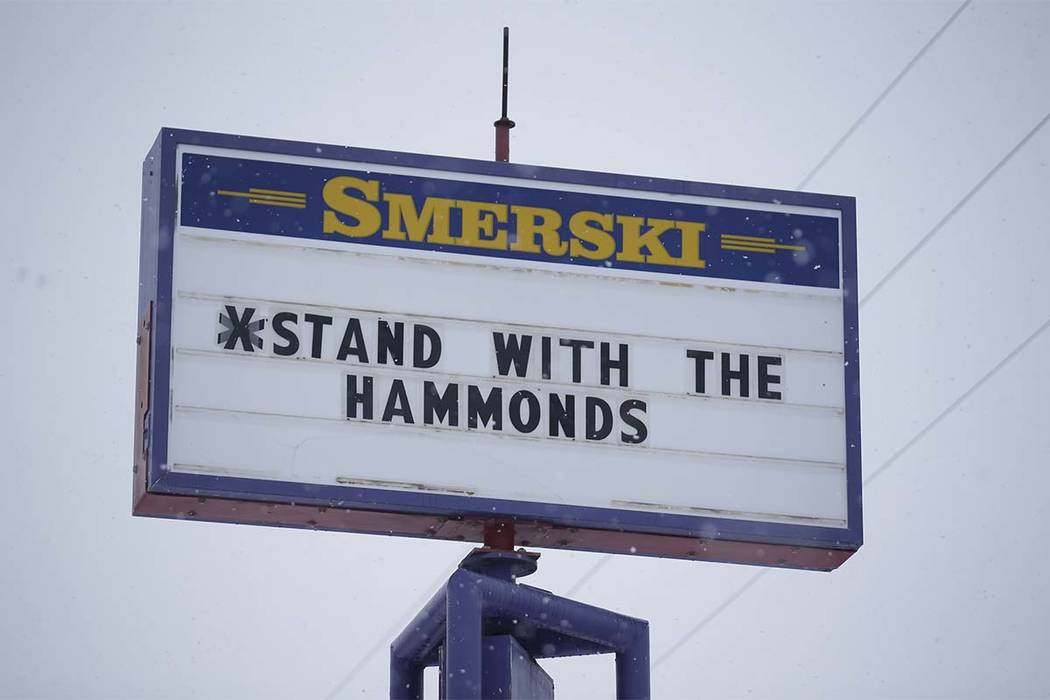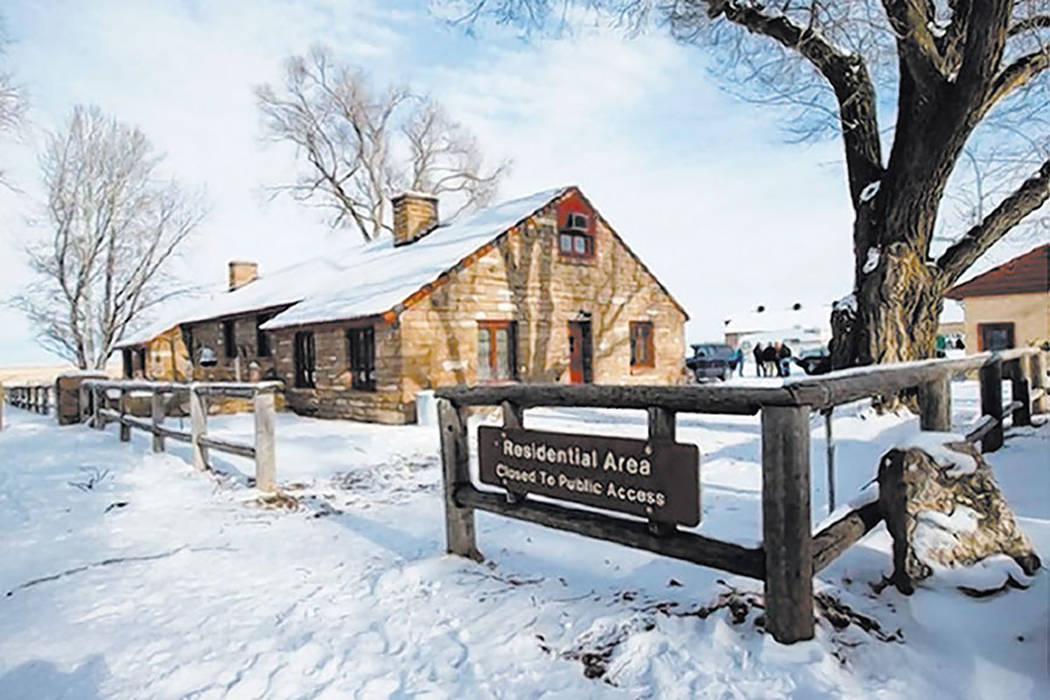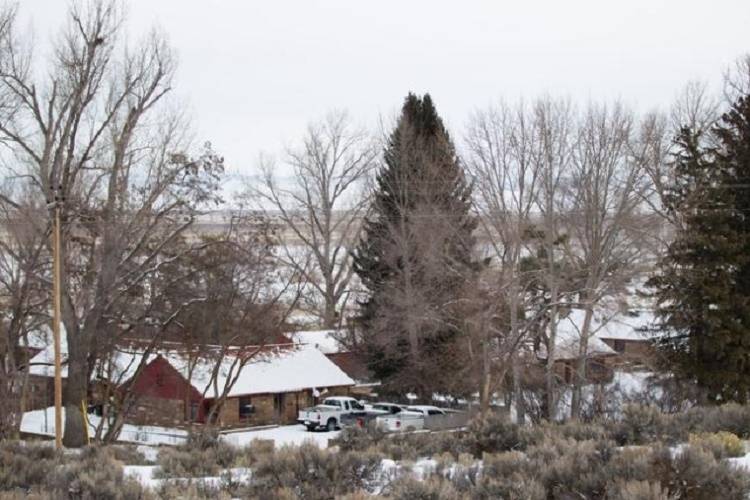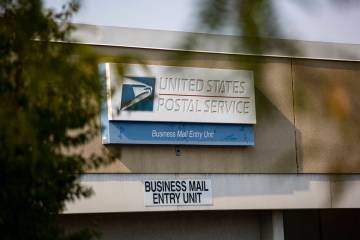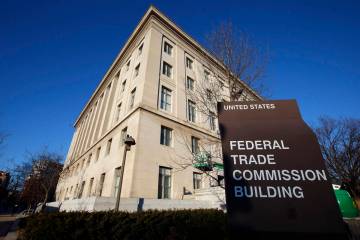Trump pardons Oregon ranchers who inspired refuge takeover
WASHINGTON — President Donald Trump on Tuesday pardoned two Oregon ranchers whose conviction on arson charges led two sons of Bunkerville rancher Cliven Bundy and other armed protesters to take over a wildlife refuge in the state in 2016.
The Hammonds and Bundys have battled with federal authorities as conservatives who favor a lighter federal footprint on Western lands.
In 2012 rancher Dwight Hammond, now 79, was convicted of arson for a 2001 fire that burned 139 acres of public land adjacent to his Harney County, Oregon, ranch. His son, Steven, 46, was found guilty of setting two fires that burned onto public land. While prosecutors sought the five-year mandatory minimum sentence for arson on public land, a federal judge sentenced the father to three months in prison and the son to one year and a day.
Both Hammonds served their time and were released.
But in 2015, after federal prosecutors appealed, another federal judge found in the government’s favor and ordered the Hammonds to return to prison to complete their five-year sentences.
‘This was unjust’
“At the Hammonds’ original sentencing, the judge noted that they are respected in the community and that imposing the mandatory minimum, 5-year prison sentence would ‘shock the conscience’ and be ‘grossly disproportionate to the severity’ of their conduct,” White House press secretary Sarah Sanders explained in a statement announcing the pardons. “As a result, the judge imposed significantly lesser sentences. The previous administration, however, filed an overzealous appeal that resulted in the Hammonds being sentenced to five years in prison. This was unjust.”
In 2015, brothers Ammon and Ryan Bundy showed up with armed militia and took control of the nearby Malheur National Wildlife Refuge in eastern Oregon to protest the judge’s order to return the Hammonds to federal prison. The Hammonds let it be known they did not seek support from the Bundy militia.
Militia members, including the Bundy brothers, were arrested at the conclusion of the 41-day standoff with federal authorities in January 2016. Law enforcement officers also shot and killed protester Robert La Voy Finicum at the scene.
Their father, Nevada rancher Cliven Bundy, had been involved in a decades-long fight with the Bureau of Land Management, which attempted to seize his cattle on federal land in 2014 during a dispute over grazing fees. That dispute triggered a tense armed standoff at his Bunkerville ranch between his supporters and federal law enforcement agents.
In February, U.S. District Judge Gloria Navarro of Las Vegas declared a mistrial for weapons and conspiracy charges against Cliven Bundy, sons Ammon and Ryan and another militia member, citing “flagrant prosecutorial misconduct.”
Ryan Bundy is now running for governor of Nevada as in independent candidate and states’ rights fundamentalist.
Reached by phone Tuesday, Ryan Bundy said the pardons were “a long time coming” and serve to further vindicate the actions he and his militia cohorts took in 2016. He said he hopes to travel to Oregon to give Dwight and Steven Hammond a hero’s welcome when they return home.
The Hammonds had sought but did not receive a pardon from former President Barack Obama. The White House released the pardon announcement as Trump made his way to Brussels for a NATO summit.
Rep. Greg Walden, R-Oregon, had urged Trump to pardon the two ranchers, who, he argues, never should have been prosecuted under a 1996 anti-terrorism law.
“As ranchers across eastern Oregon frequently tell me, the Hammonds didn’t deserve a five-year sentence for using fire as a management tool, something the federal government does all the time,” Walden noted.
‘A dangerous message’
But Jennifer Rokala, executive director of the environmental group Center for Western Priorities, said the president’s action would endanger federal employees.
“Pardoning the Hammonds sends a dangerous message to America’s park rangers, wildland firefighters, law enforcement officers and public lands managers,” she said. “President Trump, at the urging of Interior Secretary Ryan Zinke, has once again sided with lawless extremists who believe that public land does not belong to all Americans.”
The two full pardons show Trump, a law-and-order-candidate in 2016, using his executive power to check what he sees as prosecutorial overreach, challenge mandatory minimum sentences and champion conservatives who have run up against the federal criminal justice system.
Ryan Bundy said he hopes to see more pardons granted to others who have challenged the federal government, including those who were successfully prosecuted for their roles in the standoffs in Bunkerville and Malheur.
“It’s terrible that this country has come to the point where we have to beg the king for a little justice,” Bundy said. “I’m thankful that we have president who sees the injustice here.”
These were the sixth and seventh pardons granted by Trump, following pardons that have mostly gone to other conservatives snared by federal prosecutors.
Trump’s first pardon went to former Arizona Sheriff Joe Arpaio who violated a court order that he stop employing racial profiling to apprehend undocumented immigrants. Trump also pardoned Dinesh D’Souza, the conservative star of the 2012 movie “2016: Obama’s America,” who was convicted for campaign finance violations in 2014, and former top aide to Vice President Dick Cheney, Lewis “Scooter” Libby, who was convicted for obstruction of justice and perjury.
Contact Debra J. Saunders at dsaunders@reviewjournal.com or 202-662-7391. Follow @DebraJSaunders on Twitter.
Review-Journal staff writer Henry Brean contributed to this report.



